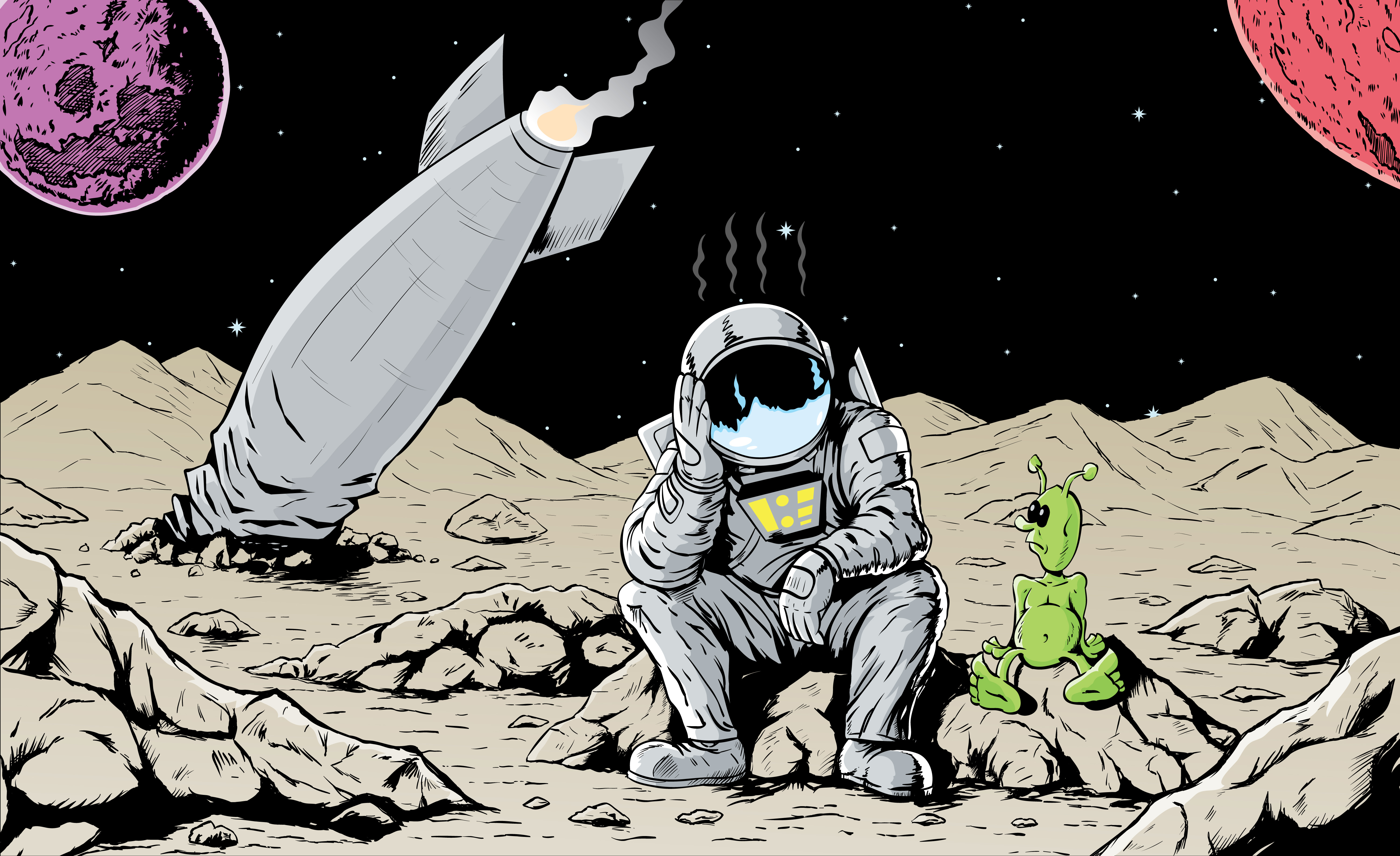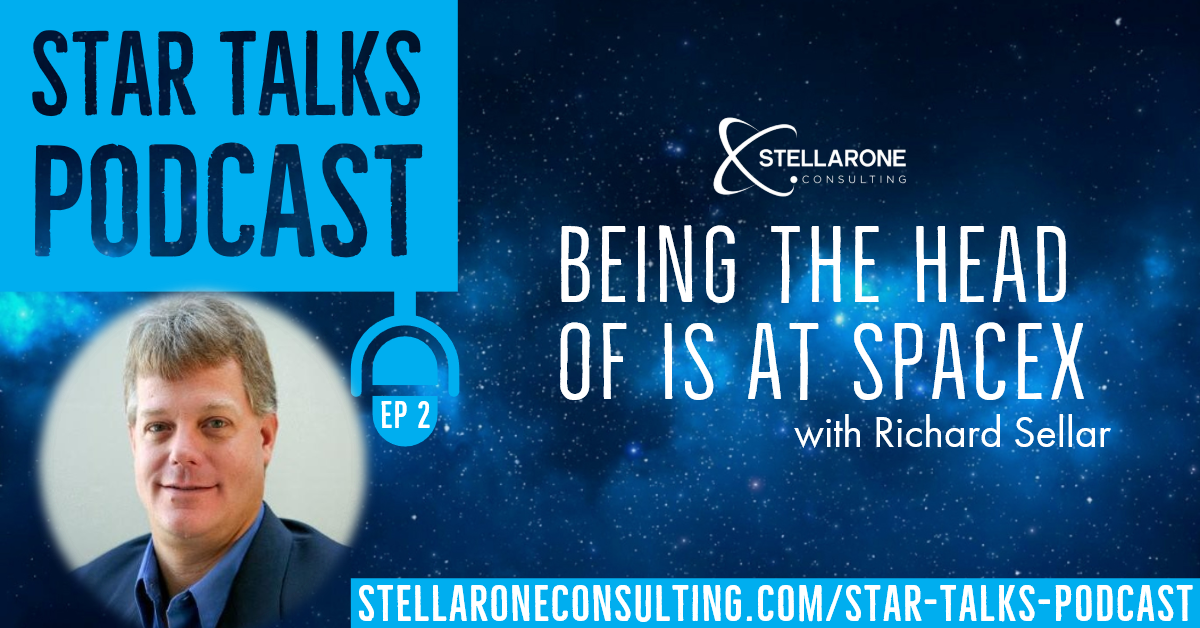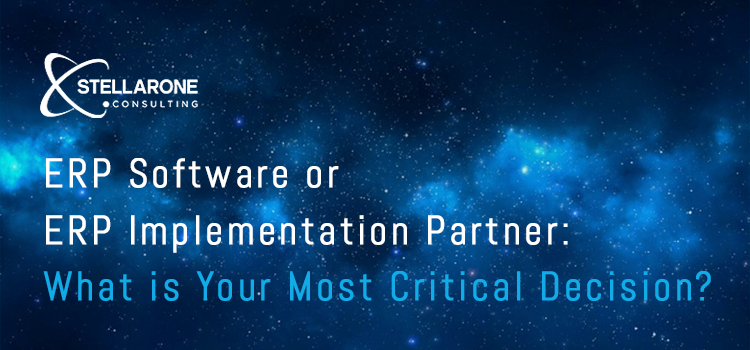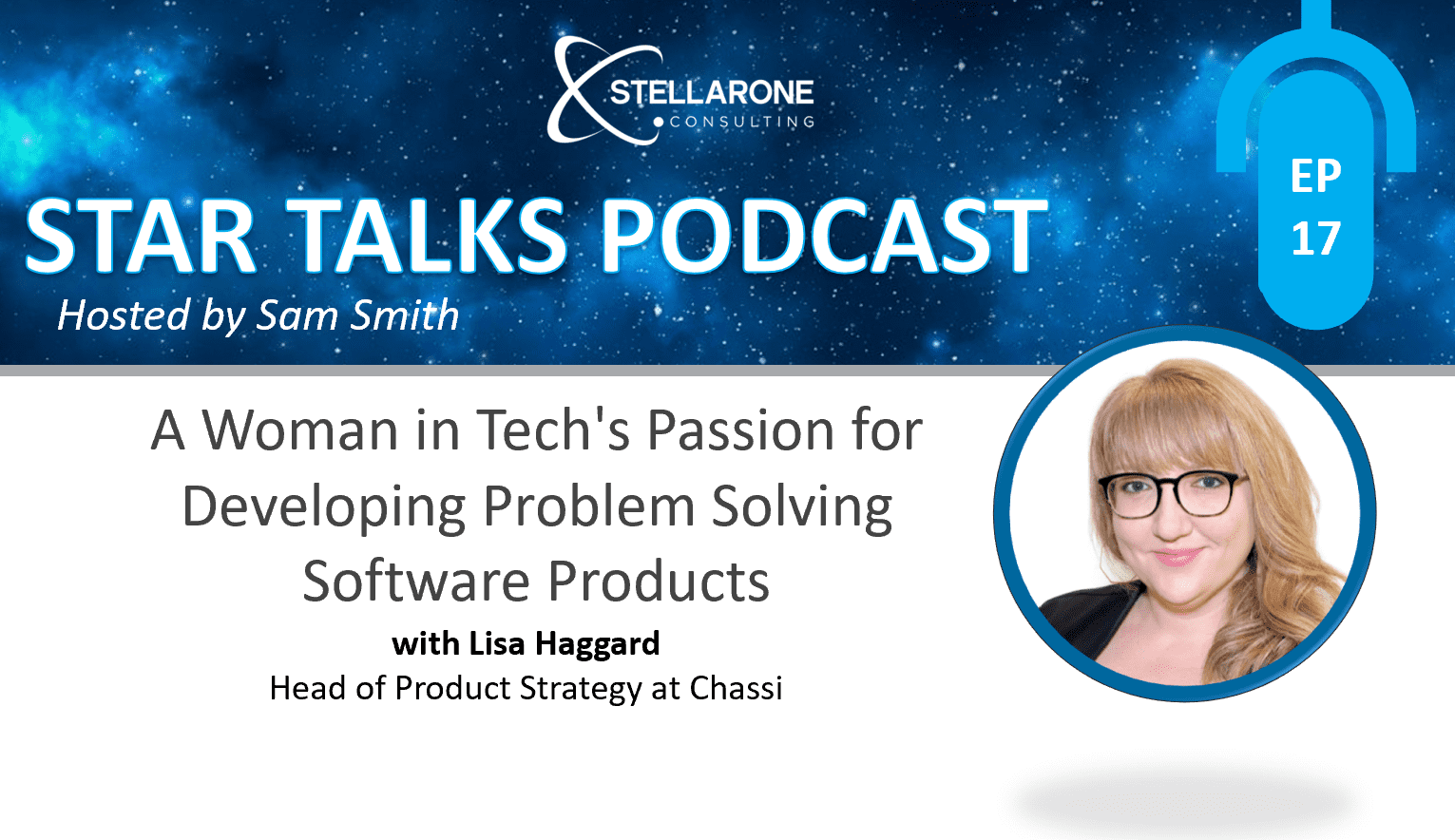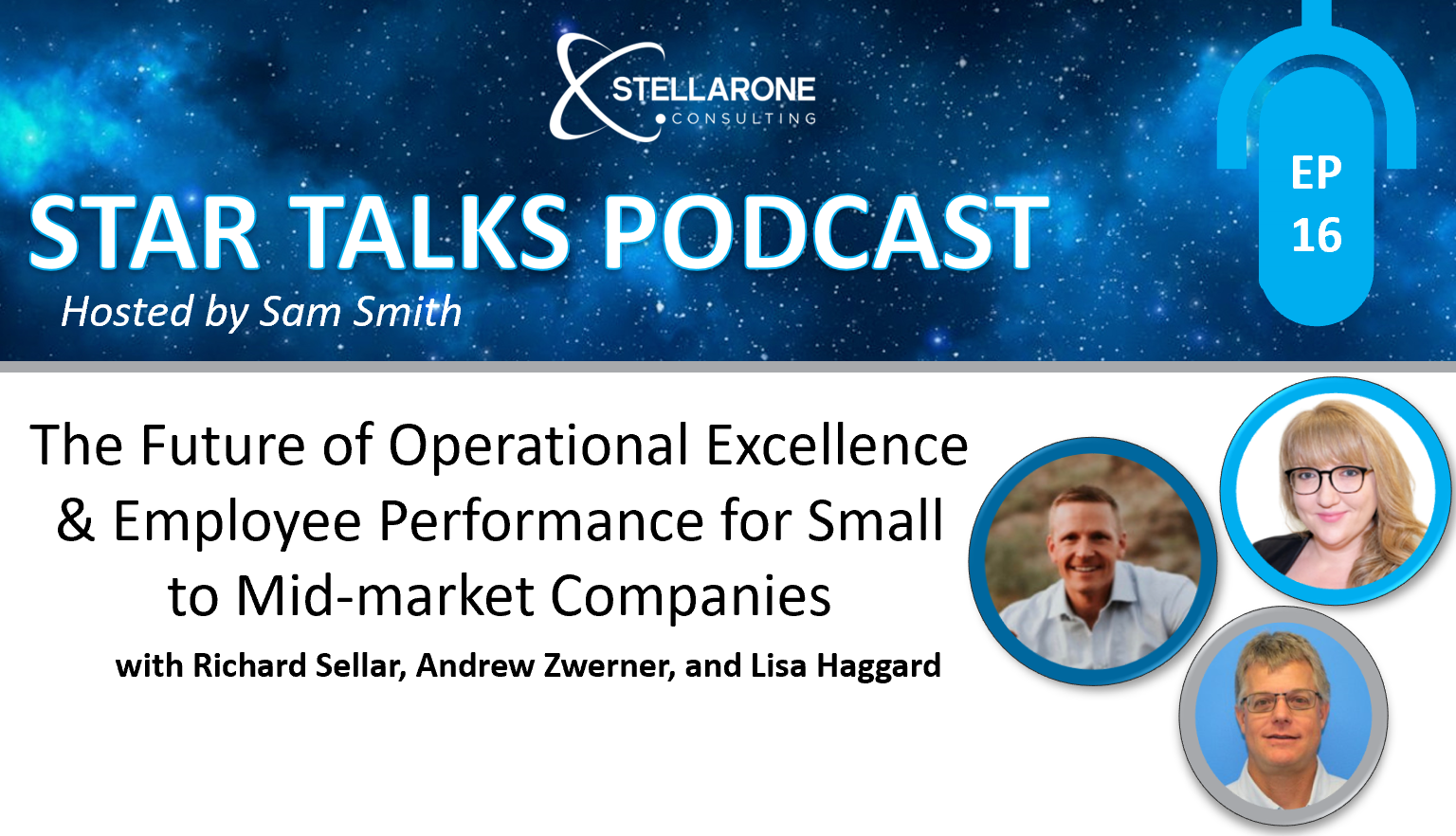Star Talks: Episode 1 with Teresa Sellar: Star Talks is the podcast of small conversations that inspire you to do big things and on this episode Teresa Sellar, the Founder of Stellar One Consulting, shares about how she overcame tall obstacles to become a successful female founder in technology.
In this episode of Star Talks, Teresa Sellar sits down with us to talk about:
- Overcoming the challenges of being a woman in technology
- Writing test software for the B-2 Bomber
- How she began, and continues to grow, a successful ERP software consulting company
About Teresa:
With 27 years of consulting experience, Teresa's various roles have allowed her to implement solutions that help small-to-mid size businesses perform to their full potential and maximize profitability. Founding Stellar One Consulting in 2011, she now holds the position, Director of Consulting. Teresa is a Certified Business One Consultant with 12 years of experience implementing and supporting SAP Business One.
Duration: 00:23:00 | Recorded: March 19th, 2019
Ways to connect with Teresa and the Stellar One Team:
Teresa Sellar - LinkedIn
Podcast Episode Links - Apple Podcast | Google Play | SoundCloud | Stitcher | Spotify
See all Episodes here - Star Talks Podcast
Stellar One Consulting Social Media - Facebook | LinkedIn | Twitter
Here's the episode transcript:
Thank you so much for being here, Teresa. Good morning. How are you?
Teresa: (01:11)
I'm doing great. How are you Sam?
Good. So the university of Notre Dame, the famous fighting Irish. So what was your college experience like? Tell, tell us a little bit about that and how did it prepare you for your career and technology?
Teresa: (01:26)
Well, my college experience was a little bit different. I was a female engineer at a school that had previously been all males. I think the first female was in the 1970s. I was there in the 80s, so there was, there were plenty of females, but in electrical engineering, not so many. Out of 110 students that graduated in electrical engineering, there were seven females. So in terms of preparing me for a career in technology, I learned how to deal with males, that's for sure. I had to be their lab partners, which they weren't too happy about. They've been skitter from the females and try and partner with each other and I would have to make them be my partner. And I think having to deal with a male dominated area really prepared me for technology.
So you were a member of the society of women engineers at Notre Dame. What was that all about?
Teresa: (02:27)
Uh, that was really nice because it brought together females in all of the engineering disciplines. So, not just electrical engineering, but mechanical, aerospace, civil, and um, we all got to get together, have meetings, talked to each other about what it was like being in a male dominated, uh, course of study in a male dominated university. So it was really nice to have other female engineers to talk to.
So you're, you've done it before and you've been in the college experience and in a male dominated field. So for women today, for someone in college or even younger girls who are in high school who are considering a career in technology, what advice would you give to them?
Teresa: (03:12)
Wow. Uh, pursue your dream. Don't worry about who else is in class with you. If you like your, um, the students that are there with you or your professors, just do what you want to do. I would say find a major that you're both interested in and you have the skills to do. There's a lot of tests out there nowadays to find your competency. Don't go into a major just to be a rebel. It's not going to work out. So find what you're good at, what you're passionate about, what you think you'll like to do. The other thing I would say is do some research and find out what kind of jobs you can do with the particular major. Um, just because you like a course of study, let's say you love math. Find out what a mathematician would do or somebody who majors in math don't just major in math because you like math. So I would encourage students to look beyond college and um, into what kinds of things you can do. What can you do with an electrical engineering degree? Can you be an SAP business one consultant? Yes, you can. And you can find people who have done that.
What was your first job in tech and what were you working on?
Teresa: (04:21)
So my first job out of college, I worked for general dynamics electronics division and I wrote software to test the test systems that tested the B2-Bomber.
So you were testing the systems that tested?
Teresa: (04:39)
That's correct. So I was writing software for Northrop, so we were subcontracting to Northrop who built the B-2 bomber. So general dynamics, electronics division built the test system. Um, so there were groups within general dynamics that wrote the software to test the B-2 bomber. But my group what wrote the software to test the test system. So it was called a self test. I was in the self test group. And the interesting thing about it is, um, the first, uh, language that I wrote in was assembly. So very, very low level. It's the, it's one up from machine code. And I loved it because you could do exactly what you want. You could say turn on the multimeter to measure five, whatever Watts and it would do it. So it was very succinct and I loved that about it. Um, and I was the only female in a department of 10. So my Notre Dame experience came in very handy. I was able to communicate with those people effectively, having had to do it before.
Wow. That's a pretty great first job.
Teresa: (05:46)
It was pretty cool. It was, it was very cool. Then I ha, um, it had gotten declassified just about a month before I started, so I was that I didn't have to get a security clearance, but it, I was able to start right away as soon as I started with the company. And um, what I found very interesting was on some of the paperwork that had been out for longer than a month in the corner, there was a logo that looked like a star, but it was five B-2 bombers head to head. And if you were paying attention, you would know that that group was working on the B-2 bomber even though you weren't supposed to know. So I thought that was interesting.
That is really cool. So fast forward after that. So when did you start working on ERP software?
Teresa: (06:39)
So in 1992 I was moving from San Diego to South bend, Indiana, back to the home of the fighting Irish and was looking for a job. I used my alumni connections and found a very nice job in South bend and it was doing consulting for AS400 ERP systems. Um, the reason I got the job was my programming experience. So I came in and started as a developer. So I worked with project managers and application consultants and I was, uh, a technical consultant. Through that experience, I learned how to be an application consultant, how to be a project manager. We had a great consulting company that really, uh, mentored their consultants and loved it, loved, loved, loved working with customers, doing projects. And I remember through that experience thinking if I could sleep at home at night and I could do more on my projects, I would really, really love this job. And, and less over time.
Hmm, gotcha. So lots of travel, lots of overtime,
Teresa: (07:51)
lots of travel, lots of overtime. I had a newborn and a two year old at the time, so that was pretty stressful. But in spite of that, I loved what I did.
So AS400. Tell, tell us what's, what was ERP software like?
Teresa: (08:06)
So the AS400 was a very, uh, reliable system. It never went down. That was its big thing. IBM never went down and it didn't go down, but it was green screen. Everything's the same size. If you picture everything, every letter on the screen is the same size. So there's no, no pictures, everything's a letter with a, with a spot to fill in data. Um, and the programming was very low level. Like you wrote when they delivered the ERP software, your order entry screen was your order entry screen unless you modified it, you actually went into the code and change the order of the fields. Um, any checking you wanted to do so much different than business one where you hit the farm settings button and you make your screen however you want.
So you've been able to see the evolution of ERP software over a long time. Um, so what are some of the biggest changes from what you've seen now?
Teresa: (09:12)
I would say a couple things. Um, the technology number one, um, having web-based systems and cloud based systems where a company doesn't have to buy a server or have a server room. It used to be you had to have a big room with servers in it that had to be cold, it had to be up off the ground, all a lot of attention being paid to hardware and now a company can have an ERP system and not have any hardware and not have any it team to speak up. Um, the second thing I would say is ease of access. So it used to be bigger companies would be on ERP systems and I've seen that move down into very, very small companies. We run SAP business one, we've been running it since we were a four person company and it, it serves us very well.
How would you describe some of the ways since you've had the ability to manage projects and for a lot of different ERP systems and you've seen the evolution of the technology, how would you describe the traditional ways that ERP software is implemented and supported?
Teresa: (10:19)
So traditionally the consulting group comes in, meets the customer, spends a lot of time doing a blueprint. A blueprint is what do we want to do with this software? With an ERP software, you can configure it a thousand different ways. So depending on the company, you get to know them, you blueprint it, which is, um, your, your roll out design. Then you spend time configuring, customizing, personalizing the software. Um, a lot of times traditionally that was without very much interaction with the customer. Com e back, presented, start testing, resolve issues. Eventually. . .
So take me back to 2011. That's the year that you founded stellar one consulting. What was that like?
Teresa: (12:21)
It was scary. I'm not really an entrepreneur by nature, but, um, it was time for me to do that. I was looking for some changes in my career and it just seemed like the right thing to do and it kind of fell into place for me. I, it was just me for a couple of years and it was supposed to stay small. It was never supposed to be a big giant corporation. Um, it was just going to be me and I didn't advertise. I, um, people found me and I got a lot of referrals. I got to the point where I had so much work more than what I really wanted to do myself or could possibly do myself. So that was a, uh, a turning point for me. So I could either start turning people away or I could hire somebody. So I went through my first hiring process. I talked to a few people. It took me a little while and I ended up crazily hiring my husband. He was my first employee and I told him, don't quit your day job. Just take a leave of absence the company was working for. I knew that they would offer him a leave of absence if he asked. And he did and he ended up extending that and then, and then telling them he was going to come full time with Stellar One.
Wow. So a lot of people start a lot of companies and having too much work, more work than they can handle is a problem they wish they had. Why did you, why did that happen to you? What w what can you attribute that to?
Teresa: (14:01)
I think I can attribute it to the quality of my work and my communication. So my customers, um, got quality work, um, and I worked very efficiently. So in their minds they were getting value and um, I've always been a good communicator. I guess I was taught to be a good communicator by my first consulting company that I worked for that it's so important to communicate even if you make a mistake or you're going to take longer than you told the customer or it's going to cost them more. If you stay ahead of that with communication, then it tends to work out well. The other reason I'd say is people have told me this, that I'm very human. I come across as, as human. I'm not some consultant that's going to come in and tell them what to do. I learned this also from my first consulting company that we come to answers together. I don't give you all the answers. If I give you all the answers, you don't own the project and you don't own your ERP system. It's mine. It's Teresa's, it's not me, mr customers. So I think a combination of that and um, some luck.
So what's been the most challenging thing about the journey for you?
Teresa: (15:16)
I'd say bringing on other people. It was very easy for me to work by myself and do an excellent job and communicate very well. And the challenge has been bringing on consultants, mentoring them, helping them. I try and get them to become me. In my mind, that's probably not the best thing to be doing, but that's how I think about consult younger consultants with less experience. And it's been hard to give up some control. So I've ever relationship with a customer, they know me. They like me now, they're working with somebody else and I have a hard time just letting that new person not do exactly what I would do. So I've had to back off a little and let, let them make mistakes. That's how I learned. I made some very big mistakes and I learned that I will never do them again. But I had to let the consultants learn their own style with my guidance and, and fail and learn how to deal with that. Pick yourself up, communicate what happened and move forward. Um, but yeah, that's been the biggest challenge.
So you, you talk to us about the traditional ways of implementing and supporting ERP software blueprinting, not a lot of customer interaction during that process. What would you say is a diff differentiator between how ERP software was traditionally implemented or still is implemented and how you lead stellar one to do things?
Teresa: (16:53)
So the biggest difference is we get the customer involved as early as possible. So instead of doing a big blueprint that, um, we have, I have found gets changed so much when you get into unit testing and system testing. Instead of doing a big blueprint upfront, we do a minimal blueprint. So we interview the customer, we talk about the things within SAP business one, I'm going to get kind of specific here, um, that you can't change later. So we make sure we get those things right and then we get the customer on the system. We say we're probably going to be 80% correct based on what we know about you and our experience. And then we iterate. So we get them in, we, they're hands on, on the system. We're there to guide them. We tweak the blueprint, if you will. Um, as we go through and when we get to the point where we're ready to cut over, instead of just having gone through a couple of weeks of unit testing and system testing, we've gone through a couple months of hands on iteration, tweaking the system, the customer through that period of time now knows the tips and tricks, the ins and outs, what, how to use the software without us even having to have a formal session about here's how you do form settings, here's how you look at a base document.
Teresa: (18:17)
They just know it from having been the ones to iterate the software. We find we have more success, less um, post cut-over tweaking and um, major issues that come up after we cut over and we can spend that time talking about what's next for you. What do you want to do in phase two? Do you want to take some time off, stick with what you've got, call us in a year or do you want to go into all the things that we've both identified as phase two when we started?
So what advice would you give to companies who are considering implementing ERP software? What are some of the challenges that may arise?
Teresa: (18:55)
So advice I would give is pick the right partner, pick the right consulting group. It's going to be so much more important than what software you pick. Even the software is important. A lot of the softwares are pretty similar. But the right consulting group can make a huge difference. Second question was what pitfalls or what challenges might they have? And from my perspective as a consultant, the challenges I see customers having is paying enough attention to the project. So it's always great. We get to the point where, you know, they're working with you, that sounds great, they signed the paperwork, we're ready to go. The consulting group steps in and they disappear or it's not as high a priority as they're not making it as high a priority as they promised in the sales cycle. So just make sure it stays a high priority. And that comes from the top. I've told customers this for years and years, the top of the company needs to communicate how important this is. You individually may have more work, especially in the short term. Um, but the company as a whole is going to benefit from this. So having that communication from the top. So if that's missing, that's, that's a big challenge. And just prioritizing it appropriately. I think the last thing I'd say is, is picking the right people to be on the project to having the right project team can make a huge difference.
So what does a company look like? Whose ERP software is implemented properly?
Teresa: (20:34)
Ooh, they look very happy. They, um, got what they wanted to, or more out of the system they purchased. They, um, work in conjunction with their consultants. So they're not afraid to ask for help. So most companies don't have an ERP expert on staff. So they do a project, they go live. And a lot of times what I see is they've spent their budget, so they stop interacting with the consulting group and they go out on their own. Maybe they use the internet for research. I've seen this a lot of times and they go down some very bad paths. They make mistakes and they don't ask for advice when maybe just a simple call to say, I'm in this situation. What should I do? Won't cost them a lot of money, but it'll, it'll save them a lot of grief later cause I'd say the longer you go it alone with no guidance, the more it's going to cost you to get yourself back on track.
What has been your favorite or most rewarding part of what you do?
Teresa: (21:39)
Seeing a project from beginning to end and then seeing the excitement in the customers when they realize what they can do in the software, what the software can do for them. And one of my favorite days of consulting was when one of my customers who'd been on SAP for a number of years said, I love this software. That was the best day.
Wow. This has been great. Teresa. Thank you so much for being here.
Teresa: (22:12)
You're welcome. Glad to do it.
If you'd like to suggest a guest, be a guest yourself, or if you have something you'd like to tell us, please send your message to StarTalks@StellarOneConsulting.com

